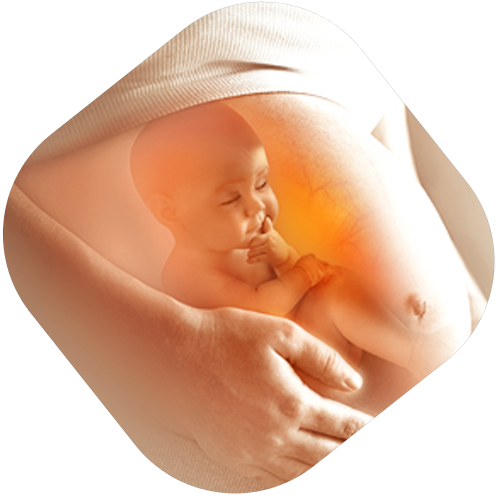
The Best Treatment For High-Risk Pregnancy - Medicover
Sometimes, women can have extra challenges during pregnancy because of their age, health history, or existing health problems. If a pregnant woman has issues like diabetes, high blood pressure, thyroid problems, PCOS, being overweight, fibroids, or HIV/AIDS, her pregnancy is called high-risk. These women, along with others who have health problems, get special care from doctors who work together.
Our careful team looks at all the risks, from before pregnancy checks to detailed checks on the baby's health and ongoing care. We're really committed to giving the best care, and we have special doctors for critical situations, anesthesiologists for pregnancy, and nurses.
We're here to help if you've had miscarriages before or if you've had a cesarean section in the past. We try to make regular childbirth possible, and we make sure to find problems early and help when needed.
At Medicover Hospital, our doctors are experts in taking care of high-risk pregnancies. We use advanced tools to do the latest surgeries that are not too hard on your body. We also have a special place in the hospital with doctors just for moms in case something goes wrong.
At Medicover Hospitals, our skilled team handles all difficult pregnancy cases, providing:
-
Comprehensive multidisciplinary care
-
Coordinated approach
-
Access to Pediatric Subspecialists
-
Integrated perinatal & neonatal program
Recognising the complexities of high-risk pregnancies, our comprehensive care ensures a smooth journey throughout pregnancy and post-birth for both mother and baby.
Frequently Asked Questions
What is a high-risk pregnancy?
A high-risk pregnancy involves factors that increase the likelihood of complications for the mother, baby, or both during pregnancy, labor, or delivery. These factors can include medical conditions, advanced maternal age, multiple pregnancies, and more.
What are some common factors that make a pregnancy high-risk?
Common factors include maternal age (very young or over 35), pre-existing medical conditions (diabetes, hypertension), gestational conditions (gestational diabetes, preeclampsia), previous pregnancy complications, and lifestyle factors (smoking, substance abuse).
Can high-risk pregnancies be managed effectively?
Yes, many high-risk pregnancies can be managed with close monitoring, specialized care plans, and early intervention. Regular prenatal care and communication with healthcare providers are crucial.
How often will I need to see my healthcare provider during a high-risk pregnancy?
The frequency of visits will depend on your specific risk factors. In many cases, high-risk pregnancies require more frequent prenatal visits to closely monitor your health and the baby's development.
What tests or screenings are done during a high-risk pregnancy?
Additional tests may include genetic screenings, ultrasounds, fetal monitoring, blood tests, and more, depending on the specific risk factors involved.
Will I need to change my lifestyle during a high-risk pregnancy?
Depending on your situation, lifestyle changes might be recommended. This could include adjusting your diet, increasing physical activity, avoiding certain substances, and managing stress.
Can I have a normal delivery with a high-risk pregnancy?
It depends on the nature of the high-risk factors. Some high-risk pregnancies may require a planned cesarean section to ensure the safety of the mother and baby, while others might still allow for a vaginal delivery
Is it possible to have a healthy baby with a high-risk pregnancy?
Yes, with proper medical care, close monitoring, and adherence to recommended treatments, many women with high-risk pregnancies go on to have healthy babies.
